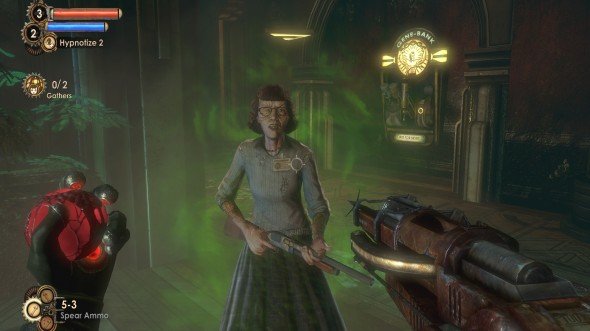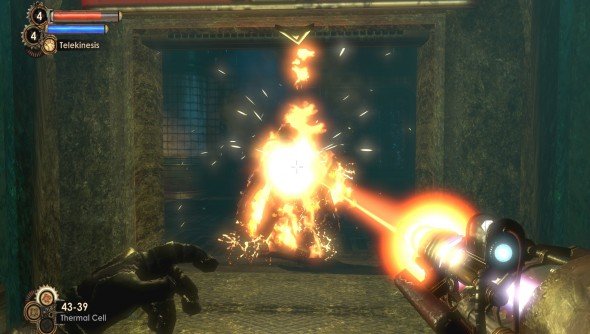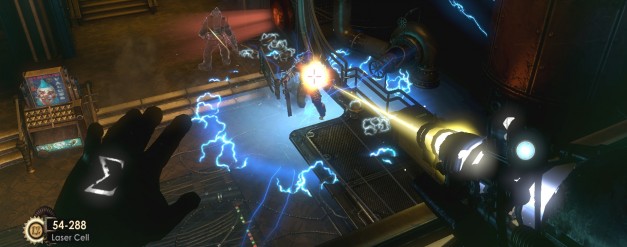Our Verdict
A satisfying self-contained chapter, driven by an engrossing story, with exploration encouraged. Plus flying laser robots
PC Gamer's got your back
BioShock 2 had you playing a lumbering Big Daddy in search of the Little Sister you were meant to protect. Minerva's Den is a separate story for the same game: you play a different Big Daddy with a different goal. You're looking for The Thinker, a punchcard-driven artificial intelligence developed to run Rapture's automated systems.
That means you start from scratch, in terms of weapons and abilities, but they come fast enough for you to quickly tool up for the play style you like. The additions to the combat formula are all worthwhile, but don't change it dramatically. That means it's still creative and fun, but doesn't feel refreshingly new.
There's a Gravity Well plasmid that sucks enemies into a singularity and spits them back out – entertaining, but a pretty slow way of dealing with the least dangerous enemies. And the new Ion Laser weapon is a very straightforward damage-dealer, as is the new Big Daddy type that uses it.
The most enjoyable novelties are the new security bots: firing rockets, lasers and electricity. When hacked to follow you around, the electricity one is a hilarious and handy companion, repeatedly shocking your enemies so you can take your time with their fate.

Minerva's Den takes around five hours to play, and the story is intriguing and substantial. It's also focused: there's almost no peripheral backstory lying around, every audio diary you find is a piece of the puzzle.
Accordingly, it asks you to do more exploring than the main BioShock games. Most areas are large hubs with no clearly marked goals, riddled with Adam, Tonics and Plasmids to upgrade your abilities.
For the most part that's great, but you'll occasionally hit a dead end and be unsure how far you're supposed to backtrack, or what you're looking for. And if you miss a major audio diary, the plot makes less sense.
Not that it makes perfect sense even if you don't, of course – it involves powerful ideas, but operates under the same magical logic by which a secret city on the ocean bed is a viable thing. The main thrust of the plot requires a credulity leap of that kind, which is a shame, but it doesn't prevent the game being engrossing.

As with both BioShock games, the antagonist isn't nearly as convincing or interesting as the conflicted characters along the way, and his taunting wears thin. But Minerva's Den is more consistently engaging than BioShock 2, because the meat of the story isn't diluted by a lot of empty philosophy. The sting in its tail isn't quite as potent as either of its predecessors, but it's a satisfying ending once you make sense of it.
One warning: you need to buy the DLC through Games for Windows Live, even if you didn't get BioShock 2 from there. Once it's downloaded, run BioShock 2 normally and find it under Extras
A satisfying self-contained chapter, driven by an engrossing story, with exploration encouraged. Plus flying laser robots


